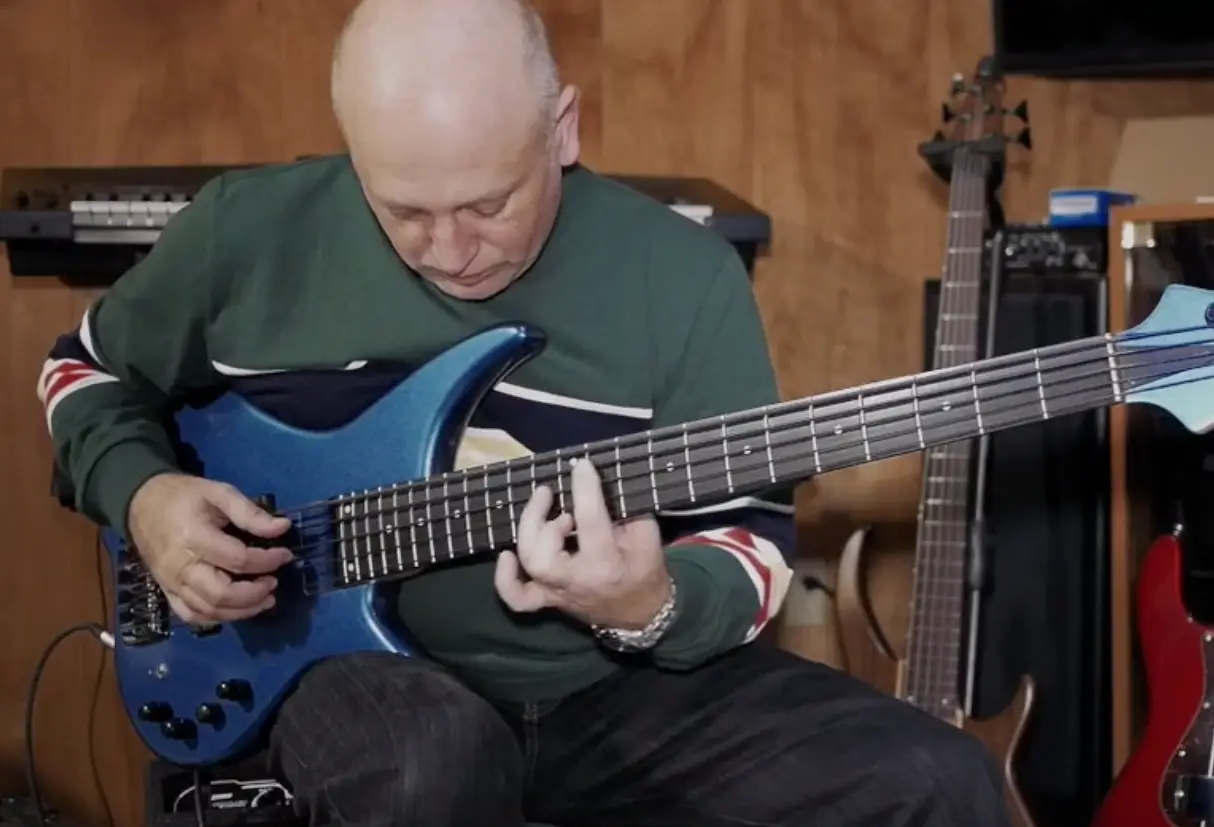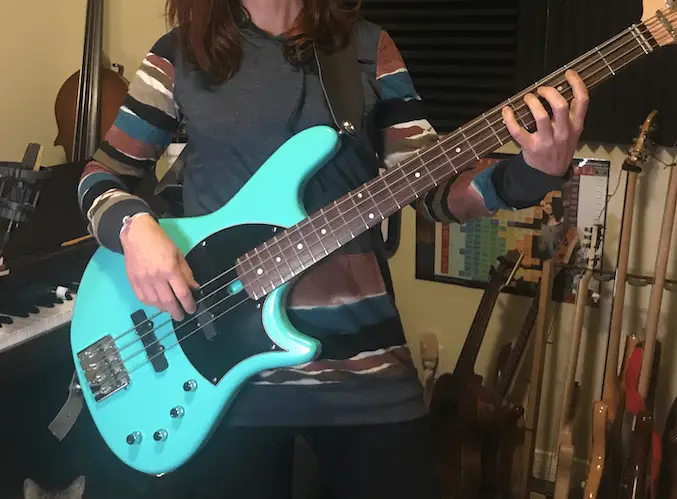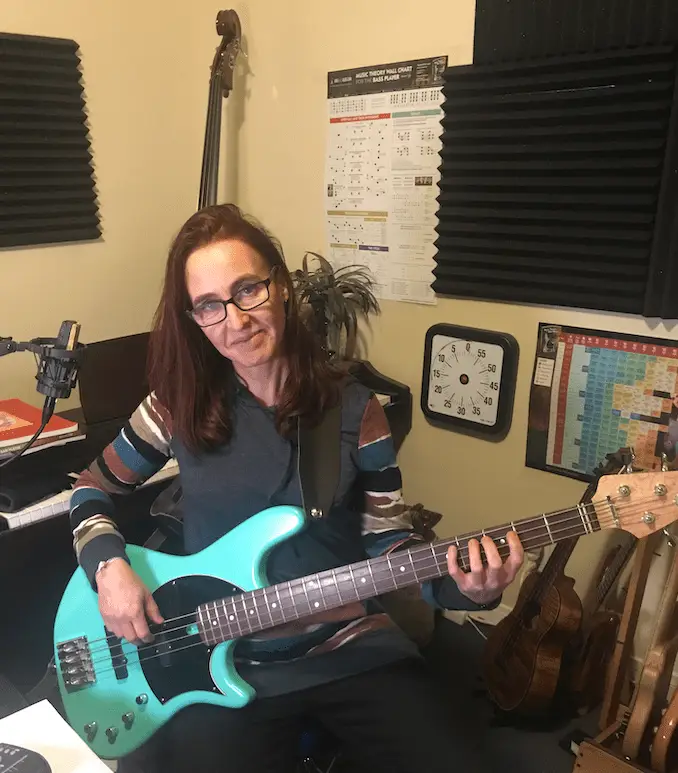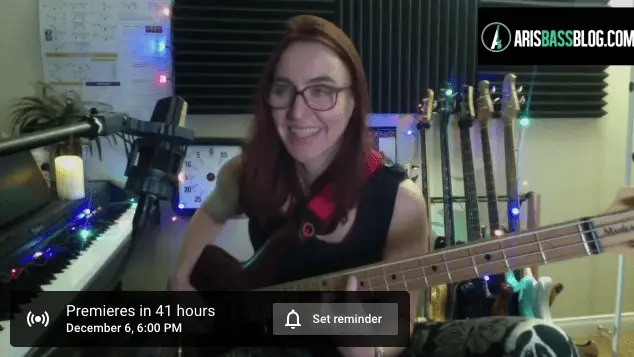Student Feature: Adrian Pop
Today I received this email and video from a bass player, a student of the course and an avid follower of my blog. It makes me so incredibly happy to read from course participants who dig deep in the course and make the material their own!
This is the kind of positive feedback that totally makes my day and inspires us to work even harder.
Adrian summarizes beautifully what our goals are with the way we present theory and how to apply it on the bass. I love it when students “get it” and tell us about how it frees their creativity and boosts their joy and confidence in making music! I know our approach is at times more challenging but I also know that the rewards are huge for those who stick with it!
Sounding beautiful, Adrian!
Hello Ariane,
This video proves to me one more time that you are the very BEST Bass teacher on the planet.
Everything I learn with you (as I said before) makes sense and it is very easy to apply to my own style of playing.That is what I love most about your lessons and about “The Course” because they help me to be ME.
I can apply my own feelings in what I play being INSPIRED and NOT depending on copying 100% some other players. YES !!!!
Thank you very much, Ariane for always spending your precious time to answer my emails and questions in the most professional way that I could expect.Please feel free to use my review and video in any way you feel that it will be good and beneficiary for you in advertising the course and your lessons.
And all I want to wish this Christmas to every bass player on the planet is: ” Take a closer look to The Course if you want to be a better player ”
In the end, every single penny that you spend is worth it much, much much more. It was worth it for me for sure because I am a better player now. Yes, I am!And I am a better player now only because I found the right person ( kind of late on my journey in life but ) probably at the right moment and that’s why I am soooooo exited and happy. Thank you Ariane !!!
I wish you and your family a very Merry Christmas and all the best in 2019.
Sincerely,
Adrian Pop
Send me your take on my arrangement, simple or advanced or a hybrid version!
Here are samples and a tutorial with PDF!
Happy Holidays, everyone!







